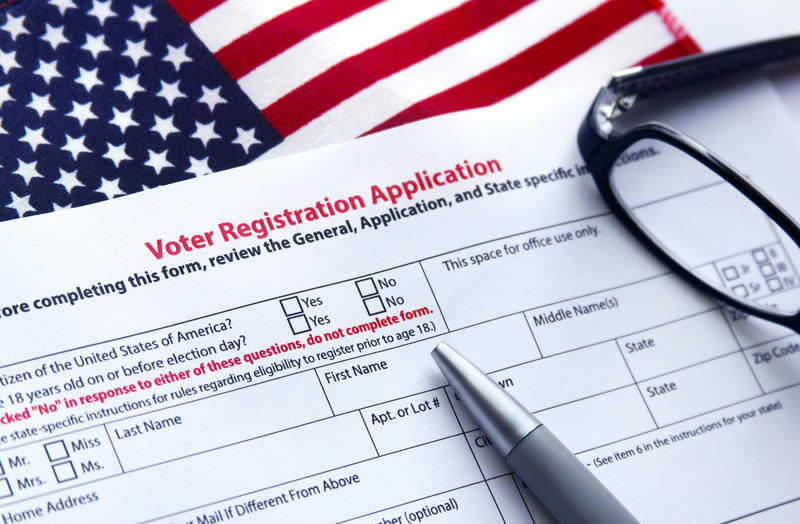
The General Election from November 6th is officially over, but concerns over voter roll purging and claims of wrongful disposition from the rolls due to politics remain at the top of the list of pundit talking points.
So is it true? What does the law say? How much discretion does the Secretary of State’s Office have? Who was behind the initiative to amend the voter roll laws in the first place?
The removal of voters from the voter rolls is not a policy initiative of the Secretary of State’s office, but a state law codified in the official Georgia code.
The law dates back decades but was last amended by House Bill 889 in 1997, a time when Democrats were in power and controlled the Governor’s office and both chambers of the legislature.
HB 889 was a bipartisan bill sponsored by Representative Sonny Dixon of Chatham County – a Democrat and later a WTOC news anchor, and co-sponsored by Democrats William Lee, Larry Walker, Jimmy Skipper, and Greg Hecht. One Republican signer backed the initiative — Robert Irwin. It was signed into law by Democrat Governor Zell Miller and took effect on January 1, 1998.
– a Democrat and later a WTOC news anchor, and co-sponsored by Democrats William Lee, Larry Walker, Jimmy Skipper, and Greg Hecht. One Republican signer backed the initiative — Robert Irwin. It was signed into law by Democrat Governor Zell Miller and took effect on January 1, 1998.
[Note: the vote totals by chamber are not available on legislature archives dating back to the 1990s]
What did HB 889 do?
- OCGA 21-2-234 was amended to clarify that any person who “has not signed a voter’scertificate,” which takes place when a vote is cast at the polls, in three calendar year shall be listed as “no contact”
- The Secretary of State, in the bill, was directed to purge the voter rolls in the first six months of odd-numbered years and required to notify the purged voter by mail instructing the elector to return a card to remain active
- Required purged voters who were dropped because they moved within the county or changed addresses in the county to update their address within 30 days of receiving the notice
- Dictated that if the card is not returned within 30 days, the voter is to be listed as ‘inactive.’
- Dictated that if the card is returned and indicates a change outside of the county of registration, the elector shall be removed from the rolls
- Required that electors placed on the “inactive” list be removed from the inactive list if they failed to vote in two November elections after being moved from ‘active’ to ‘inactive’
- Changed language for absentee ballots to not just address individuals, but specifically ‘citizens.’
- Required poll workers to be residents of the county in which they work the polls and be 16 years of age or older
- Required ballots to have language about the prohibition of vote buying
The bill also specifically authorizes the Constitutionally-created office of the Secretary of

Democrat Secretary of State Lewis Massey, who was overseeing the office at the time of the passage of HB 889 in 1997
State to ‘promulgate reasonable rules and regulations for the implementation…” to limit fraud and even specifically suggests comparing voter registration records with death certificates.
OCGA 21-2-234, which deals with voter registration and voter rolls, can be viewed in its most recent version still on the books today. The law has remained intact since the Democrat initiative in 1997.
You can read the bill in its entirety here.
This article has been corrected to reflect that Zell Miller, a Democrat, was in office when the bill was signed into law, not Roy Barnes as previously reported. Barnes won the election in 1998.
Jessica Szilagyi is a former Statewide Contributor for AllOnGeorgia.com.

3 Comments
Leave a Reply
Cancel reply
Leave a Reply

Chattooga Opinions
The Joy of the Journey: Rest for the Soul

Chattooga Local News
Reminder: Summerville’s Independence Day Celebration is Almost Here!

Georgia Politics
Sen. Ossoff Statement on Okefenokee Swamp Land Deal

Bulloch Public Safety
06/09/2025 Booking Report for Bulloch County

Bulloch Public Safety
05/27/2025 Booking Report for Bulloch County

Bulloch Public Safety
06/02/2025 Booking Report for Bulloch County

Bulloch Public Safety
06/16/2025 Booking Report for Bulloch County

Bulloch Public Safety
06/06/2025 Booking Report for Bulloch County







DR
November 20, 2018 at 3:53 pm
Good background information, but Zell Miller, a Democrat, was Georgia’s governor at the time the bill was passed and signed. Barnes didn’t take office until January 1999.
Jessica Szilagyi
November 20, 2018 at 5:30 pm
You are certainly correct. I have edited the article and offered a correction disclaimer. Thank you!
Eric j Eckmann
December 1, 2021 at 8:37 pm
I realize this article is 3 years old and I may not hear back from anybody but just in case I do, can you link me to any information verifying the 1997 h b 889 statute about voter purging in Georgia? I have tried and tried and cannot seem to find it. Thank you very much